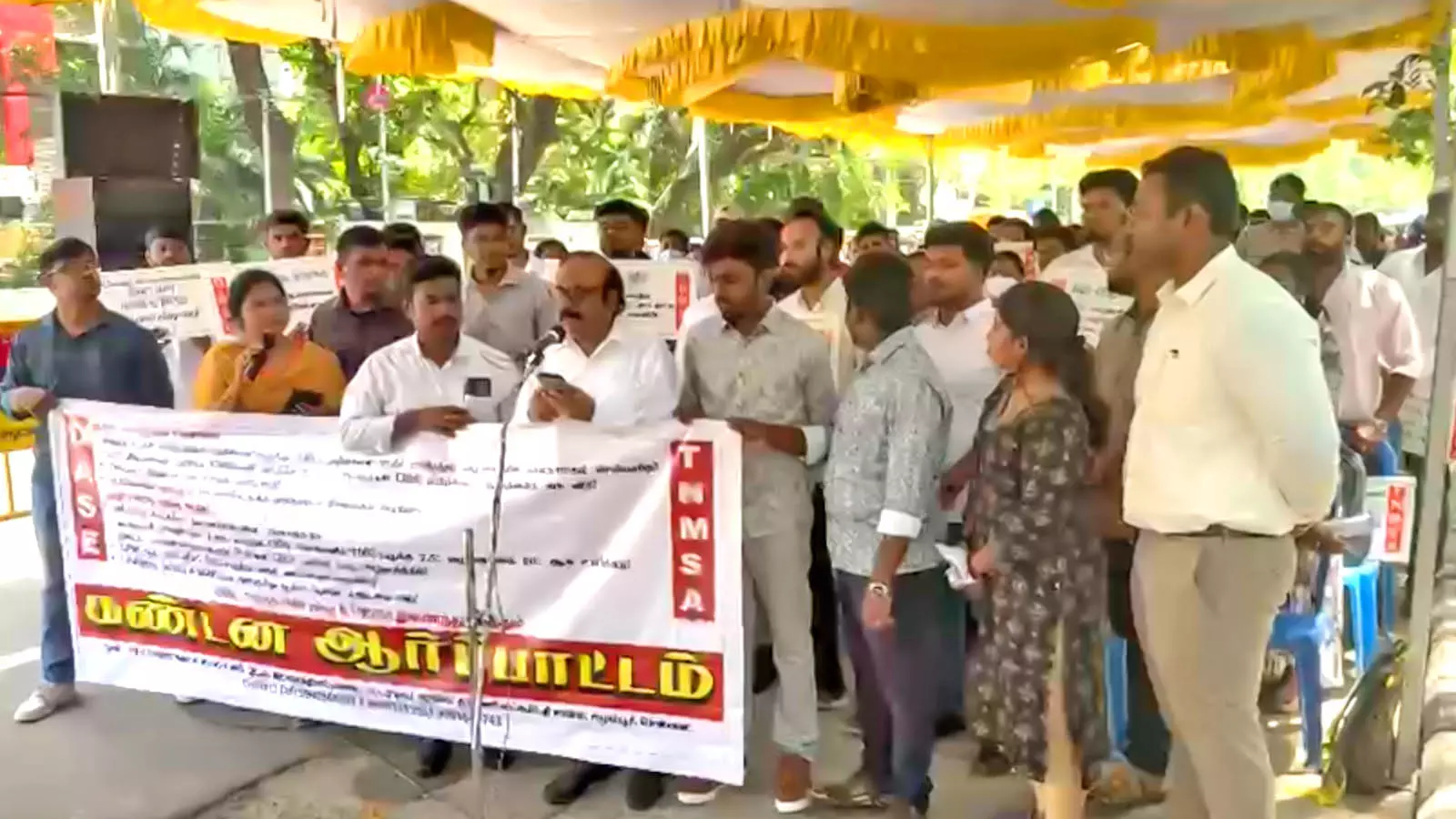
TN: Foreign Medical Graduates' careers stalled over bureaucratic delays
Indian students with foreign medical degrees say Tamil Nadu’s slow certification and registration process adds years to their wait. Can the system be fixed?

Foreign Medical Graduates (FMGs) across Tamil Nadu are raising the alarm over bureaucratic delays that are stalling their medical careers. These are Indian students who have completed their MBBS degrees abroad and returned home, only to face long wait times for provisional eligibility certificates (PECs), compulsory internship placements, and registration with the Tamil Nadu Medical Council (TNMC).
While the process used to take 30 to 45 days before 2020, FMGs say it now stretches to over a year and a half, with PECs alone taking up to 12 months. Without these certificates, students cannot begin their mandatory Compulsory Rotational Residential Internship (CRRI), delaying their permanent medical registration in India.
Years lost in wait
FMGs say that compared to Indian medical graduates, they are losing one to two additional years just to be allowed to practise. One graduate said, “Until 2020, everything was done in 30 to 45 days. But now, just getting the PEC takes nearly a year.”
Also read: Obesity alert: India rolls out oil and sugar boards at snack stalls
The delay, they claim, isn’t with the embassies or universities that verify their degrees. “Embassies reply within 7 to 10 days,” said another student. “The lag is entirely at the TNMC end.”
Many FMGs also complained of disrespectful treatment when they approached the council for updates. Some alleged they were mocked or even threatened when they tried to raise concerns.
FMGE just the beginning
Clearing the Foreign Medical Graduate Examination (FMGE) is only the first hurdle. Students then face further roadblocks in securing CRRI seats and final registration.
Also read: Should homeopathy, ayurveda specialists be called ‘doctors’? The great medical divide
“We study for six full years abroad. Then we prepare for six more months for FMGE. If cleared in the first attempt, we still wait months for the next step,” said a student. “In total, it takes around eight years. But in Tamil Nadu, it’s closer to nine.”
They contrast this with states like Karnataka, where the process reportedly concludes in just one month. “Why can’t Tamil Nadu be as efficient? It’s the same country, the same rules,” they said.
Other states, same woes
Tamil Nadu isn't the only state where FMGs are struggling. In Andhra Pradesh, over 250 FMGs have left for internships in other states like Telangana, Odisha, and Uttar Pradesh due to delays. The Andhra Pradesh Medical Council blamed documentation issues — such as lack of clarity about online study during the pandemic — for the hold-ups.
Also read: Apple AI model detects pregnancy with 92 pc accuracy, says study
But FMGs argue that inconsistent policies across states and poor transparency are making things worse. In Kerala, FMGs have also reported discrimination in hiring. In states like Uttar Pradesh, Bihar, Rajasthan, and Maharashtra, students face four to five-month delays even after clearing FMGE.
Doctors’ bodies call for reforms
Dr. G N Ravindranath, General Secretary of the Doctors’ Association for Social Equality, recently pointed out the emotional and financial stress FMGs face due to these systemic delays.
“They are unable to begin practising or apply for postgraduate studies. This is an urgent issue,” he said.
With an estimated 25,000 Indians studying medicine abroad every year, the challenge is growing. FMGs and their supporters are now calling for immediate intervention by the National Medical Commission (NMC) and state councils to streamline and standardise the process.
“We’ve done our part. Now the system needs to respect our qualifications and let us serve,” an FMG said.
(The content above has been generated using a fine-tuned AI model. To ensure accuracy, quality, and editorial integrity, we employ a Human-In-The-Loop (HITL) process. While AI assists in creating the initial draft, our experienced editorial team carefully reviews, edits, and refines the content before publication. At The Federal, we combine the efficiency of AI with the expertise of human editors to deliver reliable and insightful journalism.)

